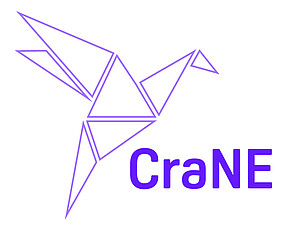Network of Comprehensive Cancer Centres: Preparatory activities on creation of National Comprehensive Cancer Centres and EU Networking
The CraNE Joint Action is proposed for funding in response to the flagship number 5 of the Europe’s Beating Cancer Plan, which defines that the European Commission will establish by 2025, an EU Network linking recognised National Comprehensive Cancer Centres (CCCs) in every Member State (MS) to facilitate the uptake of quality-assured diagnosis and treatment, including training, research, and clinical trials across the Union. The Europe’s Beating Cancer Plan aims to ensure that 90% of eligible patients have access to such centres by 2030.
CCCs have grown to be important providers of advanced cancer care, research and education in most MSs of the EU. Their numbers differ across countries, but generally, most EU MSs have at least one CCC. So far, their quality assurance through certification/accreditation was primarily done by two mechanisms, one established as a part of an accreditation process within the European Organisation of Cancer Institutes (OECI) and the other by the German Cancer Aid, whose activity has not been limited to Germany. Given the typology of cancer care organization in the EU, different types of cancer care networks are important alongside the CCCs in delivering high quality standardised cancer care in EU MSs.
The main aim of CraNE JA is to create an EU network of the already existing and newly established CCCs, to support the implementation of quality-assured early detection, screening, diagnosis, treatment, support to cancer survivors, and training of the cancer workforce. There is a need to establish the specific tools and definitions for the Network of CCCs as well as for the establishment of the secretariat of such a Network. Alongside the Network of CCCs, there is also a need to develop adequate definitions for the setup of the CCCNs, where CCCs stand as the central institution according to the hub-and-spoke model. In order to facilitate the establishment of such an EU Network, CraNE will prepare the necessary preconditions, administrative, professional, and those related to high-quality performance.
The CraNE JA will also provide an assessment on sustainability and feasibility as well as link the development of an EU Network of CCCs and CCCs in individual Member States to the development of national and regional CCCNs. This way, the existing organisational and functional models of cancer care will be taken into account and incorporated into the proposed solution.
Specific objective 1: To endorse the sustainability of the outputs of the CraNE JA towards future implementation into cancer care structures in the MS
Specific objective 2: To create a European network of national CCCs to improve cancer care and avoid the unacceptable disparities currently present across the EU
Specific objective 3: To further develop the access and availability of the comprehensive high quality of care in CCCNs to all European Member States and align the high standards in cancer care for all quality assured institutions with a focus on the interfaces between care and research (CCCN and CCC).
Specific objective 4: To develop a consensus model for CCCs, both standalone centres as well as centres, which are part of University or General Hospitals
Specific objective 5: To identify and analyze the current practices and models of organisation in real-life settings as key references to assess how high-quality care and research are available to all cancer patients in a given regional and local levels through networking models.
The CraNE JA brings together 25 Competent Authorities and 19 Affiliated Entities from 25 different countries. The CraNE partners are uniquely placed to implement the network of CCCs in Europe.
National Institute of Public Health Slovenia (NIJZ – Nacionalni inštitut za javno zdravje) coordinates CraNE JA. Institute of Oncology Ljubljana has a role of Affiliated Entity and will take part in Work package 6 – Organization of comprehensive, high-quality cancer care in Comprehensive Cancer Care Networks (CCCNs) – lead by German Cancer Society (DKG – Deutsche Krebsgesellschaft) and Work package 7 – Framework and criteria to enable the implementation of Comprehensive Cancer Centres within an EU Network – lead by French Institute of Public Health (INCa – Institut National du Cancer).
The CraNE JA started on 1st October 2022 and will last 24 months.


